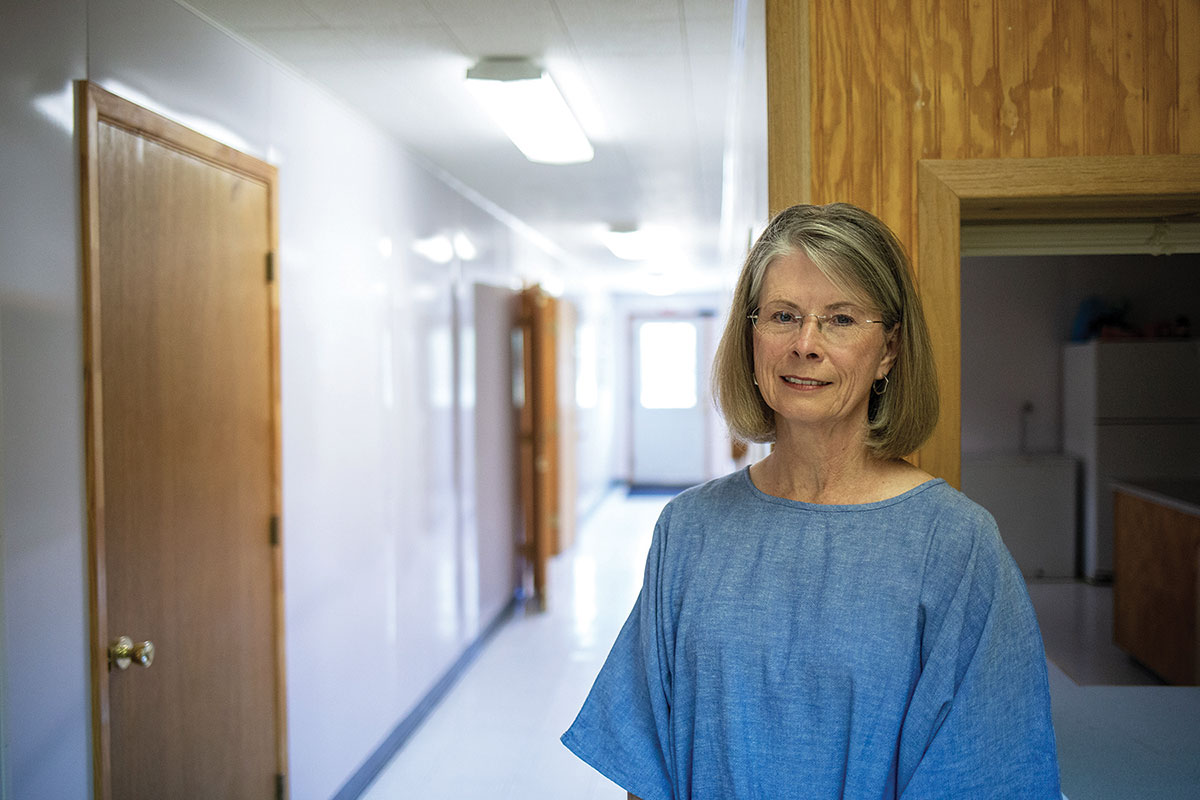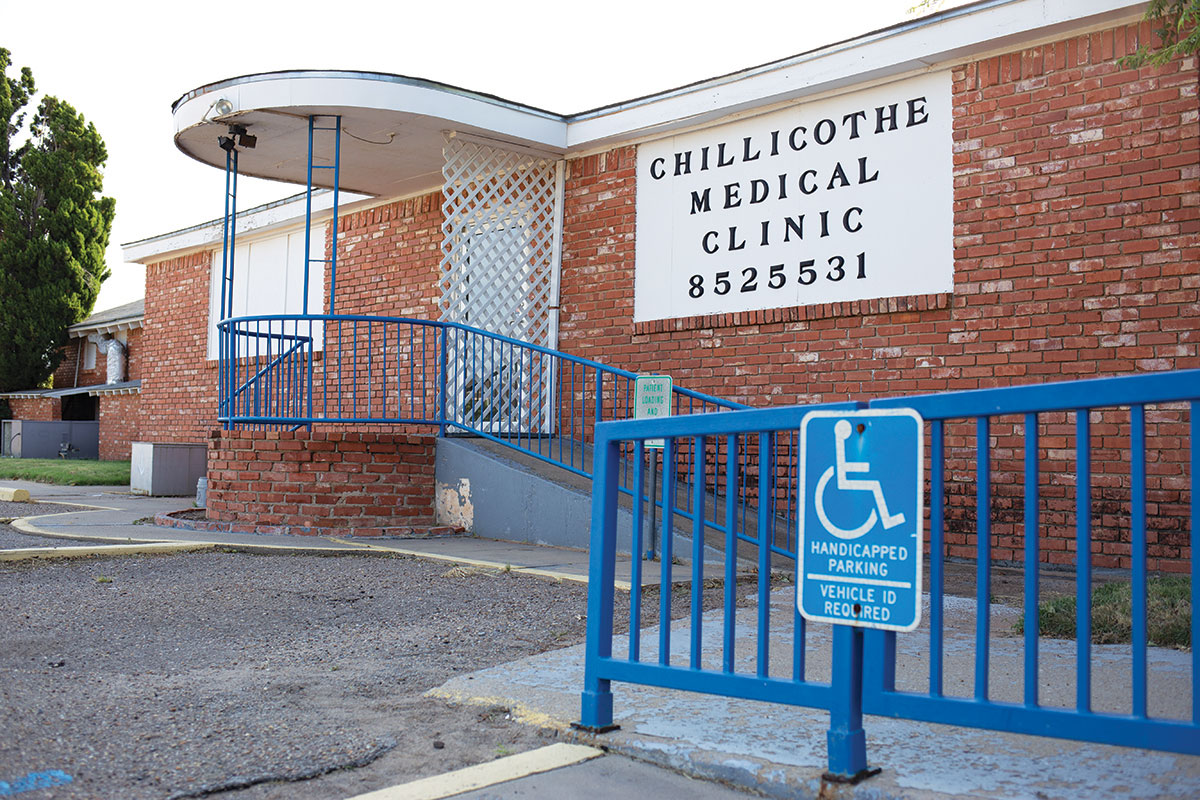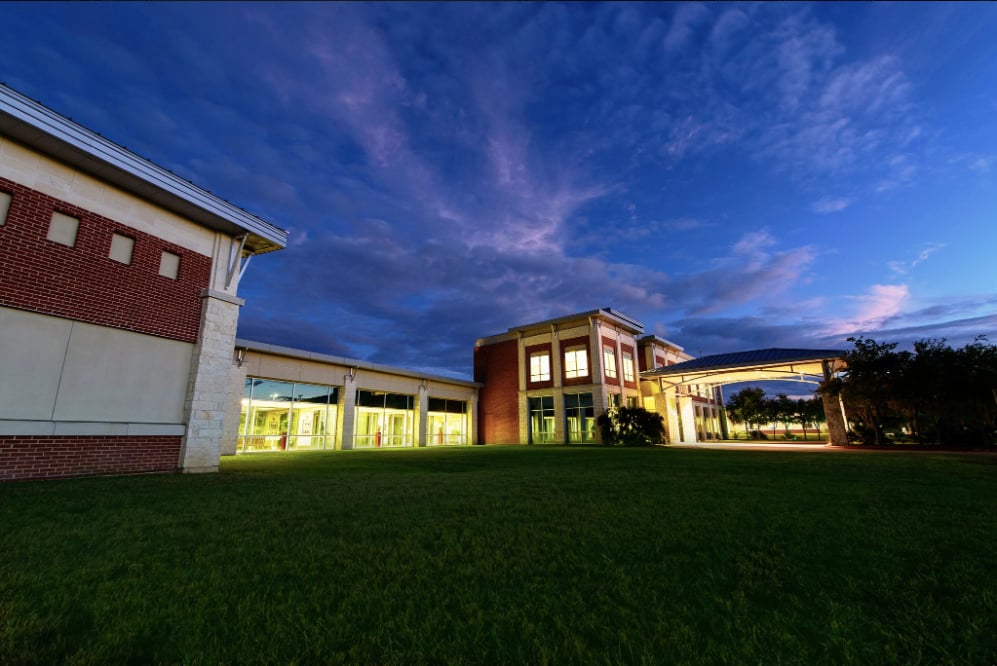
The Last Nurse in Memphis, Texas
Carole Ward, a former nurse practitioner, ran the only health clinic in a small town in the Panhandle until she retired in 2017.
A version of this story ran in the November / December 2019 issue.
This story is part of “Critical Condition,” a series investigating Texas’ rural health care crisis. Read Part 1 here.
Carole Ward, a 66-year-old nurse practitioner who lives in Hedley, ran the Memphis health clinic from 2005 until she retired and the clinic closed in 2017. The clinic offered limited services, but it was better than nothing. In the two years since, Hall County officials have been trying to reopen it, with some advocates suggesting loosening restrictions placed on mid-level practitioners such as Ward. Under Texas law, nurse practitioners and physician assistants can render medical services under the supervision of a licensed physician. In late July, the Observer sat down with Ward to talk rural health care, running a small health clinic, and her decision to leave the facility.
Texas Observer: Is there a shortage of health providers in this part of rural Texas?
Carole Ward: Yes. It’s a low socioeconomic area, so it’s sometimes hard to find resources for people. That was stressful. I think a big thing is just [patient] volume. You just don’t have much volume. Therefore your profits are low.
What kinds of expenses are involved in operating a rural health clinic?
Well, it depends on the kind of staff you have. I had an office manager for everything clerical. Then a [licensed vocational nurse] who worked with me. In Texas, nurse practitioners have to have a cooperating physician, and I was blessed to have one that would do that without charging me. A lot of nurse practitioners pay big bucks to get their collaborating physician.
Did you have any regulars?
I did have a lot that just came there. A lot of older patients who didn’t need to be driving out on the highway anymore. It was hard knowing [after the clinic closed] they weren’t going to have anyone to take care of them here in town. One of them actually bought my lunch the other day at a restaurant in Childress.
Did the low reimbursement rates from Medicaid and Medicare affect your bottom line at the clinic?
Sure. You know, I made some money, but not near as much as I could have had I stayed somewhere else. And I tried to sell it as opposed to just closing it, but I’m not a marketer either. When [potential buyers] look at your books for the last five years, then they’re not interested anymore.
Why did you decide to retire?
You might think I’m crazy when I tell you this, but I just felt like the Lord was telling me it was time. And He was telling me that three years before I did it. I couldn’t quite get behind it, because, what am I gonna do next? It just didn’t go away, that’s for sure. It was just time.
Was that a difficult decision?
Really tough. I enjoyed what I did. Everyone wants to make a difference and feel useful. I felt like I did make a difference. I got out of nursing school when I was 20, so I had basically been a nurse my whole life. I mean, I don’t really have any hobbies. You get to where, that’s who you are instead of that’s just what you do. It’s hard to find a new identity after all those years.
Do you personally worry about living so far from a medical professional?
Last July, I came home and my husband had been mowing. He had chest pain. I loaded him up and took him [74 miles] to Amarillo. He ended up with a triple bypass. You always think about those sorts of things as we get older.
This interview has been edited for length and clarity.
Read more from the Observer:
-
I’ve Lived in East Austin for 60 Years, and I Don’t Recognize it Anymore: As gentrification reshapes my neighborhood, I fear we’re losing something of real value to our city.
-
Rick Perry Exports His Pay-to-Play Politics to Ukraine: Perry has talked about his aspirations for Ukraine to become “the Texas of Europe.” On the corporate cronyism front, he may just have succeeded.
-
American Cities Weren’t Revitalized by the White ‘Creative Class.’ Immigrants Made Them Great: Barrio America weaves together several strands of urban studies to tell a story that transcends what might seem like irrevocable barriers of race and class.


